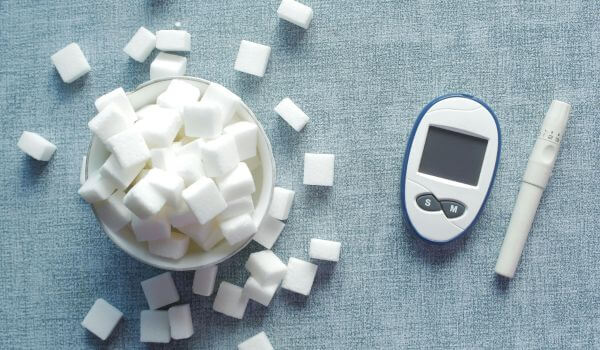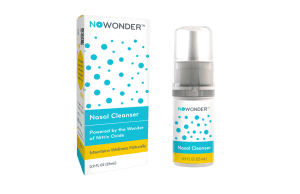
A simple blood test measures total cholesterol, along with each of the different types of cholesterol. Some people inherit a family history of high cholesterol, meaning their body struggles to clear LDL from the bloodstream. Others develop high total cholesterol from lifestyle habits, like diets heavy in saturated fat, lack of exercise, smoking, and weight gain.
High triglyceride levels, combined with high total blood cholesterol, can quietly raise the risk of heart disease. Often, there are no outward signs until problems appear.
Understanding these risk factors and how they affect the body is the first step toward better health. When people know why cholesterol rises, they can take action to bring their numbers into a healthier range before serious heart problems occur.
Digging into total cholesterol
How does bad cholesterol rise?
Most of the time, high or low-density lipoprotein (LDL) is linked to habits and genetics. Foods high in saturated fat, like fatty meats, cheese, and fried snacks, raise LDL. A poor diet, extra calories, and inactivity also push up LDL and high triglyceride levels. Smoking lowers HDL, the “good cholesterol,” so LDL isn’t cleared as effectively.
Some people inherit a family history of high cholesterol, where the liver struggles to remove LDL. This condition means even healthy habits can’t completely keep high cholesterol levels in check.
Other risk factors and medical causes
Age plays a role. As the body gets older, it naturally produces more LDL, and total cholesterol tends to climb. Certain health conditions, including high blood pressure, diabetes, kidney disease, and thyroid problems, also raise cholesterol. Some medications can make LDL higher or lower HDL.
Other surprising triggers 
Stress may cause cholesterol levels to climb by changing hormone levels and encouraging unhealthy eating. Smoking damages blood vessels, making plaque more likely to form. Sudden weight changes, especially rapid weight loss, can temporarily raise cholesterol before it settles.
Why cholesterol rise is dangerous
Excess LDL collects inside blood vessels as plaque. Over time, this buildup narrows the vessels and makes it harder for blood to flow. This raises the risk of heart disease and can lead to a heart attack or stroke.
Managing risk factors
Controlling cholesterol involves more than one step. Eating less saturated fat, staying active, managing stress, quitting smoking, and keeping a healthy weight all help. Regular blood tests track LDL, HDL, and triglycerides so changes can be made before heart problems develop. For those with a strong family history, extra monitoring and lifestyle care are especially important.
In summary, cholesterol numbers need to be carefully watched
High cholesterol levels are caused by a mix of inherited and lifestyle factors. Family history and age make it harder for the body to remove low-density lipoprotein (LDL). Eating foods high in saturated fat, being inactive, smoking, carrying extra weight, or living with constant stress all add to the risk. Certain health conditions and medications can raise LDL or lower high-density lipoprotein (HDL), making the problem worse.
High LDL allows plaque to build up in blood vessels, increasing the risk of heart attack or stroke. Understanding the types of cholesterol and knowing personal risk factors helps people take action.
Choosing healthy habits, getting regular blood tests, and making smart adjustments are key to keeping high cholesterol levels under control and protecting long-term heart health.
Frequently asked questions about total cholesterol
What is the main cause of high total cholesterol?
The biggest causes are eating too much saturated fat, being inactive, and smoking. A strong family history also makes it harder for the body to clear LDL.
What are the 10 warning signs of high cholesterol?
High cholesterol is often silent. Rare signs include fatty deposits on the skin or eyelids, but most people only discover them through a blood test.
Why is my cholesterol high if I eat healthy?
Sometimes, genetics or a family history cause high LDL even with a good diet. Age, medications, and medical conditions can also raise cholesterol.
What should my cholesterol be for my age?
Most adults aim for total cholesterol below 200, LDL under 100, and HDL above 40. A blood test shows if numbers are in a safe range.
Does stress cause high cholesterol?
Yes. Stress raises certain hormones that increase LDL and may lower HDL. Stress also leads to unhealthy habits that raise high cholesterol levels.
Why is my total cholesterol high but everything else normal?
Sometimes, total cholesterol is high because LDL or triglycerides are elevated. A full blood test helps explain which parts are out of balance.
Are eggs bad for cholesterol?
Eggs do contain cholesterol, but for most people, they don’t raise LDL much. Saturated fat has a bigger impact on high blood cholesterol.
What is the number one cause of high cholesterol?
The most common cause of high total cholesterol is a diet high in saturated fat, combined with lack of exercise. For some, inherited risk factors are equally important.
What can cause cholesterol to increase quickly?
Rapid weight changes, heavy coffee intake, certain medications, or sudden stress can cause high cholesterol levels to spike temporarily.
Can high blood pressure raise cholesterol?
High blood pressure doesn’t raise cholesterol directly, but it damages blood vessels already affected by plaque, increasing risk of heart disease.
How often should I get a cholesterol blood test?
Most adults should get a blood test every one to five years, more often if they have multiple risk factors.
Can losing weight lower LDL fast?
Yes. Even modest weight loss can lower LDL and triglycerides fairly quickly, though sudden weight loss may cause a temporary rise first.
Does saturated fat affect HDL or LDL more?
Saturated fat mainly raises LDL, the “bad cholesterol.” Replacing it with healthier types of fat helps lower LDL and support better HDL levels.
Is total cholesterol alone enough to assess heart risk?
No. Total cholesterol is helpful, but LDL, HDL, triglycerides, and other risk factors give a clearer picture of heart health.














